Vocabulary Building Normal Reading Fiction Worksheets for Ages 4-7
7 filtered results
-
From - To
Enhance your child's language skills with our engaging Vocabulary Building Normal Reading Fiction Worksheets designed for ages 4-7. These worksheets present fun and interactive activities that introduce young learners to new words through captivating stories. Each worksheet is crafted to foster comprehension and word recognition, making vocabulary acquisition enjoyable and effective. With colorful illustrations and age-appropriate content, children will explore the world of reading while expanding their vocabulary. Perfect for reinforcing classroom learning or enriching at-home studies, our worksheets offer a wonderful combination of education and entertainment, ensuring that your child develops a lifelong love for reading and language. Explore our collection today!
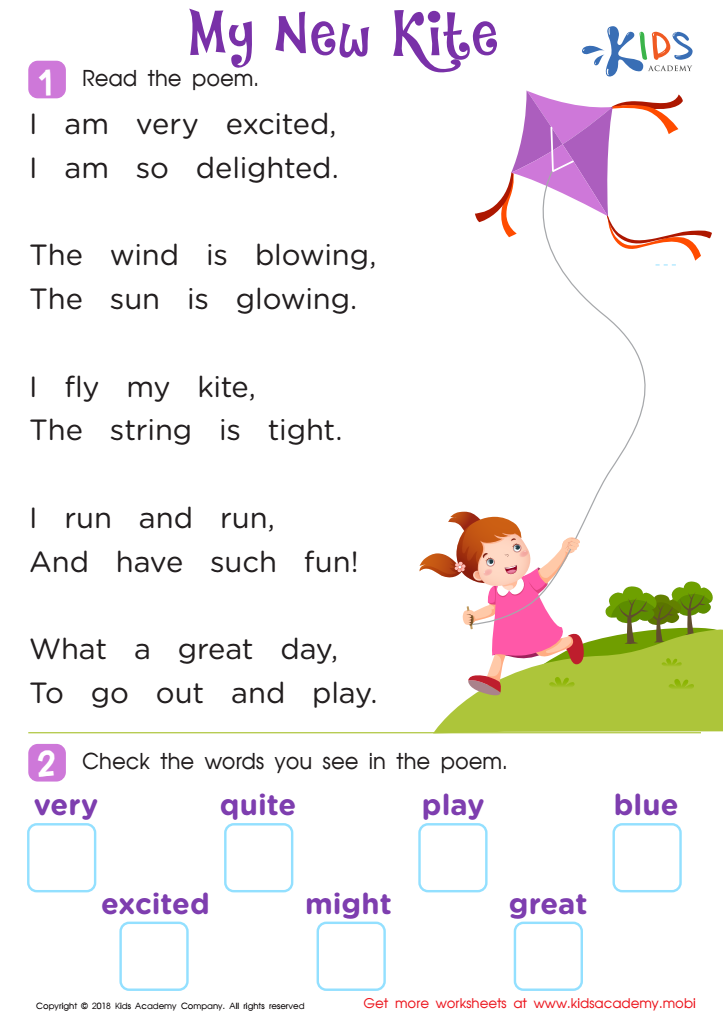

Poem: My New Kite Worksheet
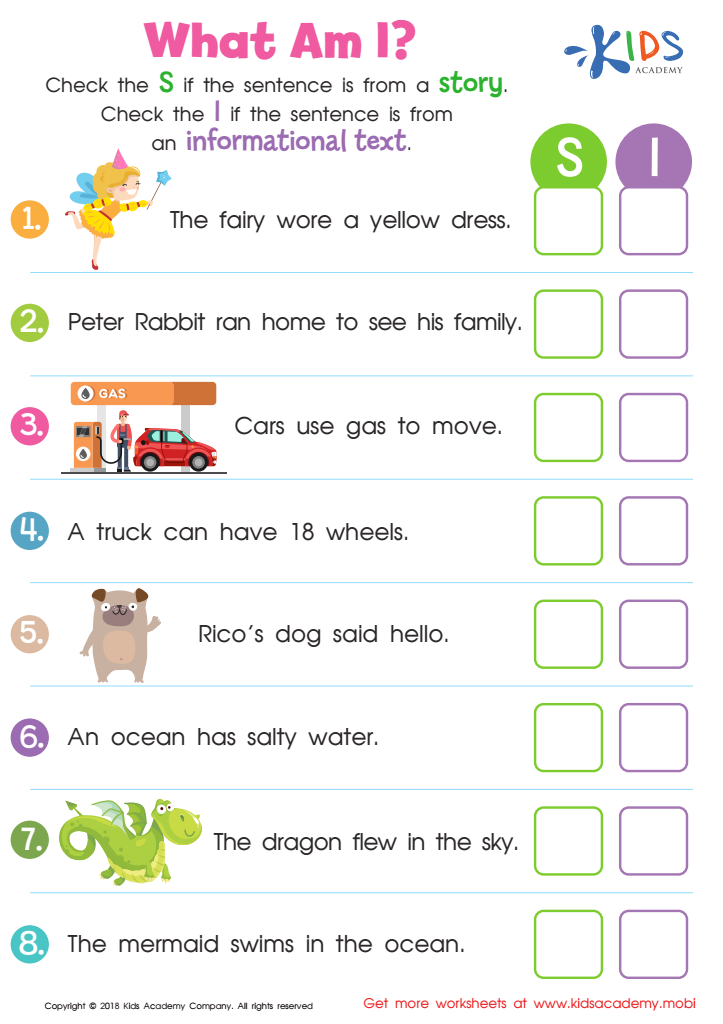

What Am I? Worksheet
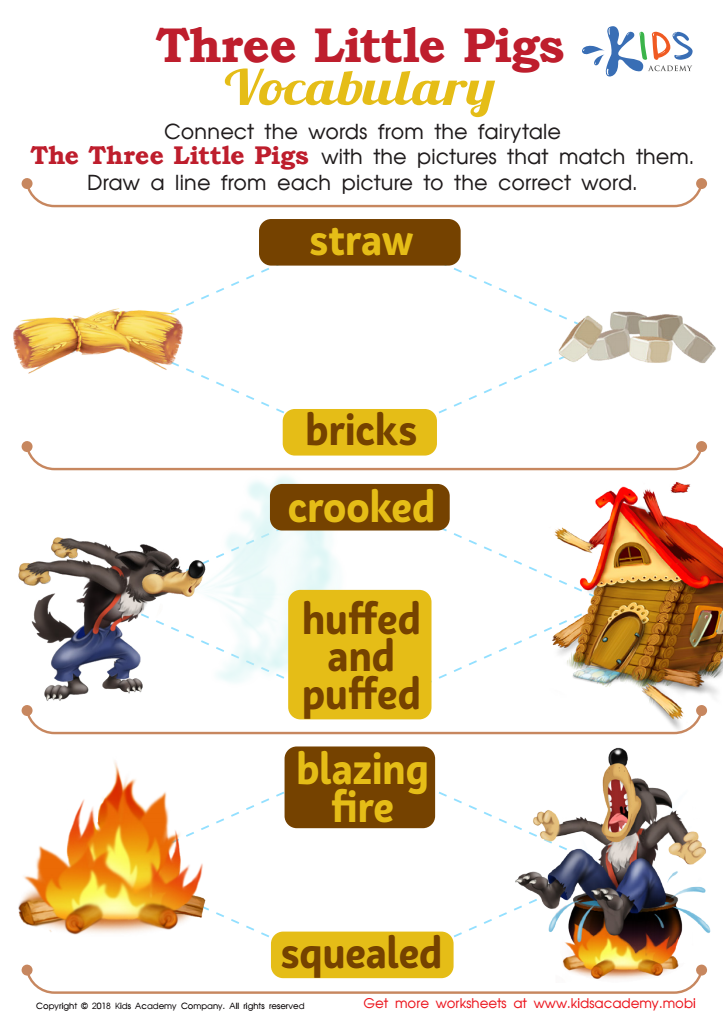

Three Little Pigs Vocabulary Worksheet
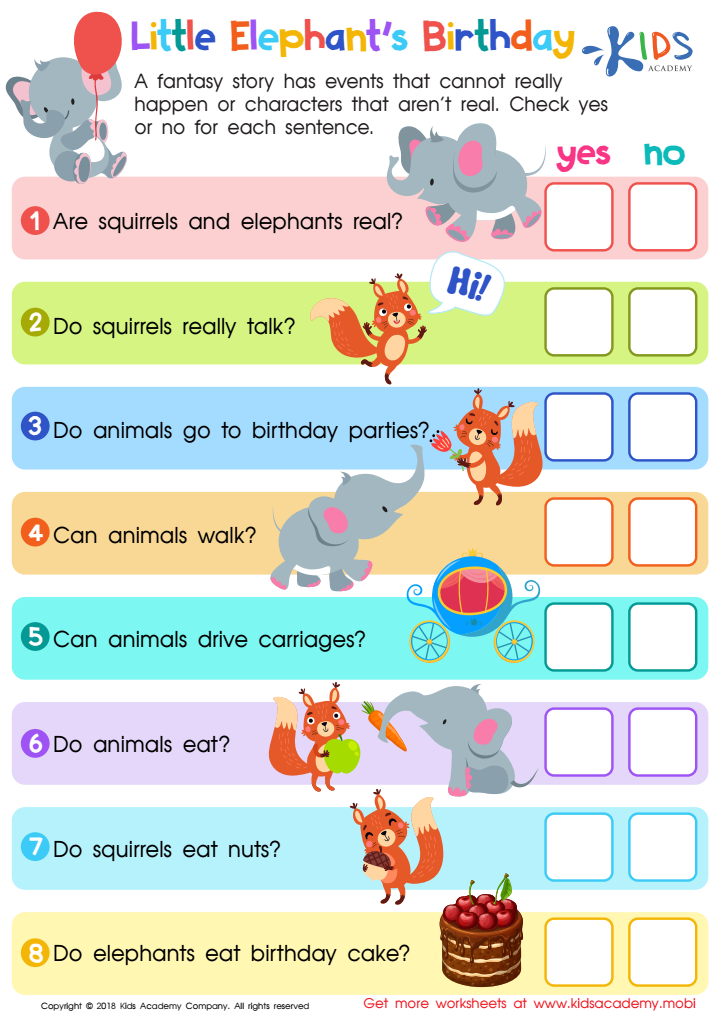

Little Elephant's Birthday Worksheet
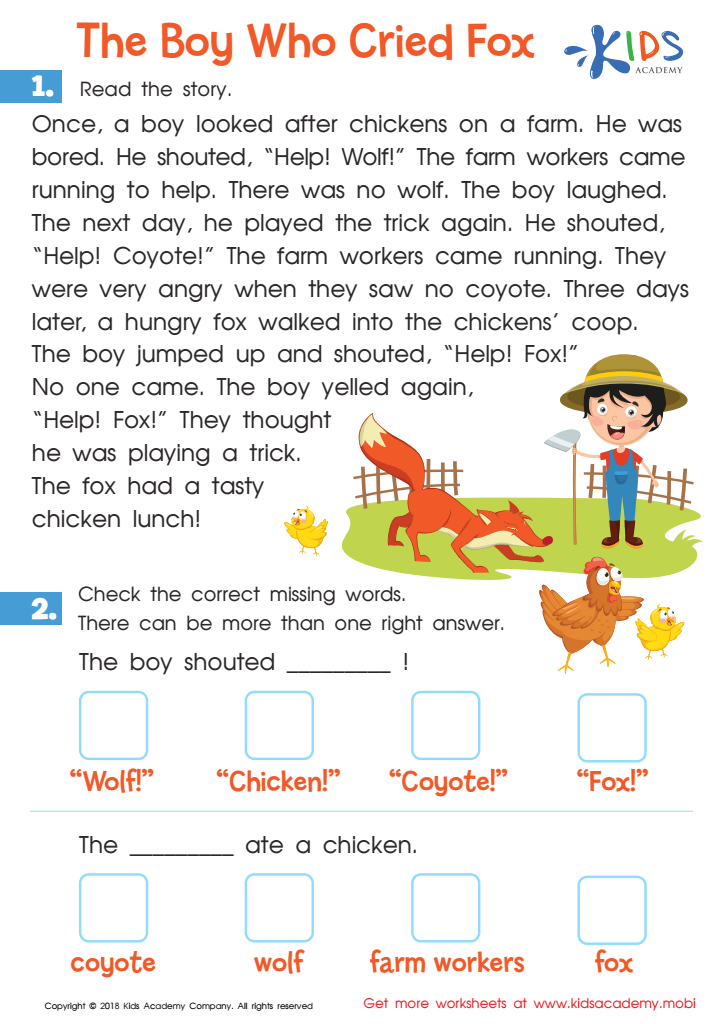

The Boy Who Cried Fox Worksheet
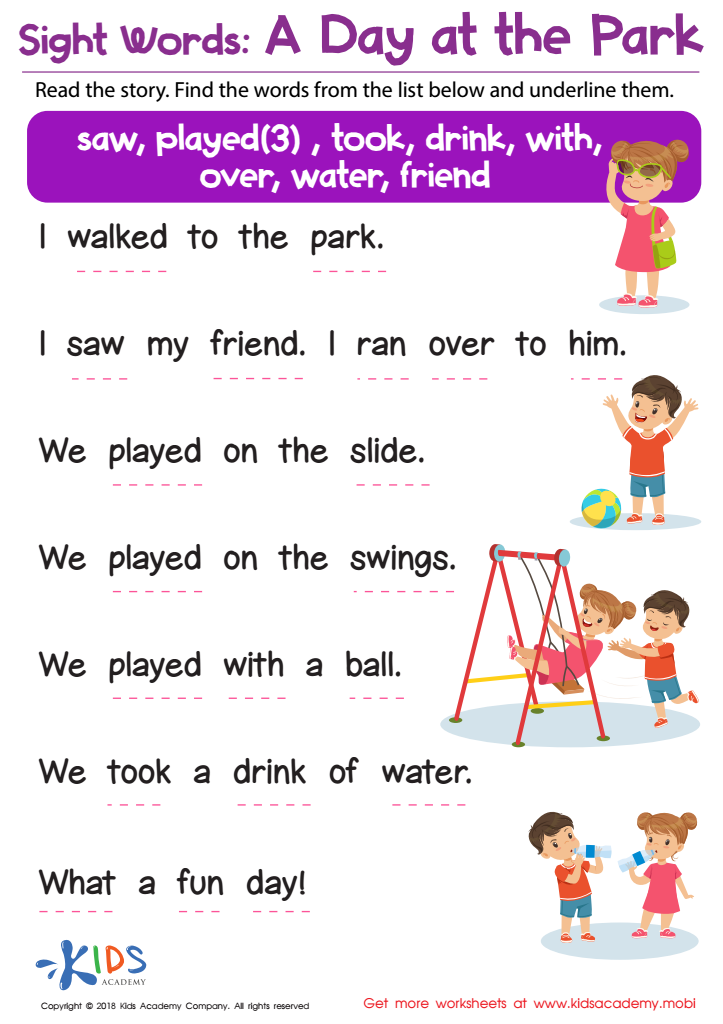

Sight Words: A Day at the Park Worksheet
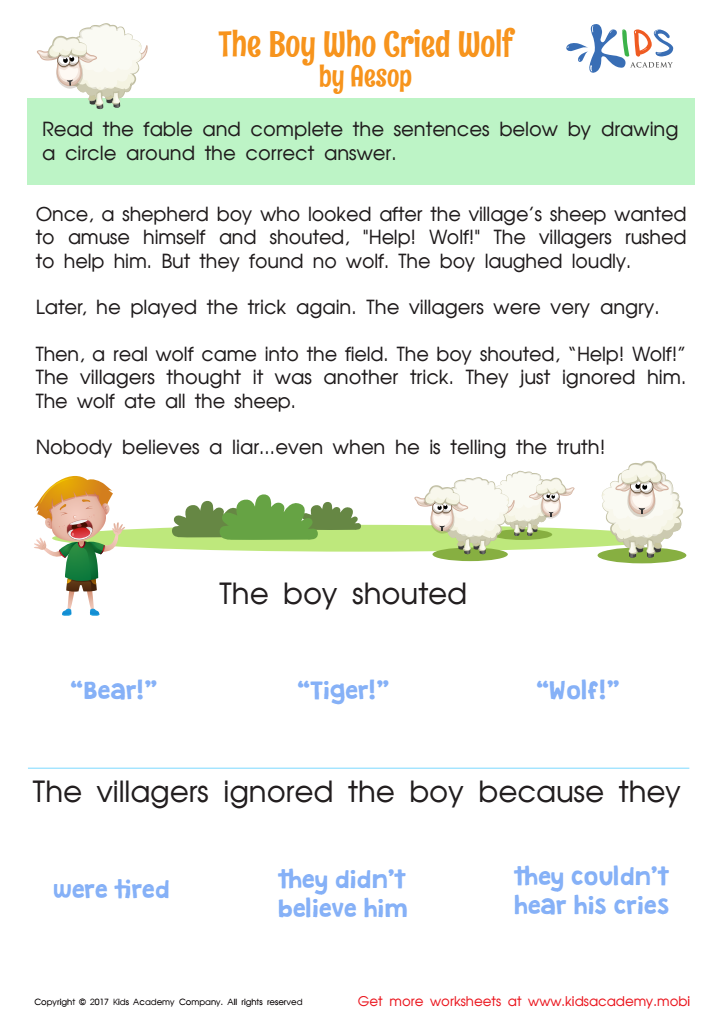

The Boy Who Cried Wolf Worksheet
Vocabulary building through enjoyable reading materials is crucial for children ages 4-7 as it lays the foundation for their future communication skills, academic success, and overall cognitive development. This age is a critical window for language acquisition, and engaging with age-appropriate fiction significantly enriches a child’s vocabulary.
Fictional stories often introduce new words within contexts that make them easier to understand and remember, enhancing comprehension skills. When parents and teachers read aloud or encourage children to explore these texts, they foster not only vocabulary growth but also creativity and imagination. The delightful narratives captivate young minds, prompting discussions that further deepen their understanding of language and context.
Moreover, a robust vocabulary enables children to express themselves more clearly and confidently, which can positively impact their social interactions and emotional growth. Encouraging a love for reading at this early stage nurtures lifelong readers, aiding their success in school and beyond. Therefore, parents and teachers should prioritize reading engaging fictional books to provide enriching experiences that support language development and literacy skills, empowering children for their academic journeys.

 Assign to My Students
Assign to My Students






.jpg)



.jpg)








